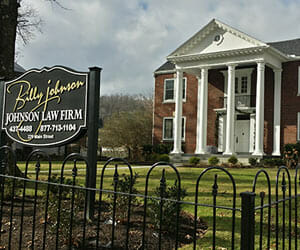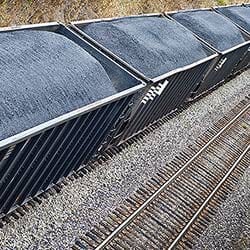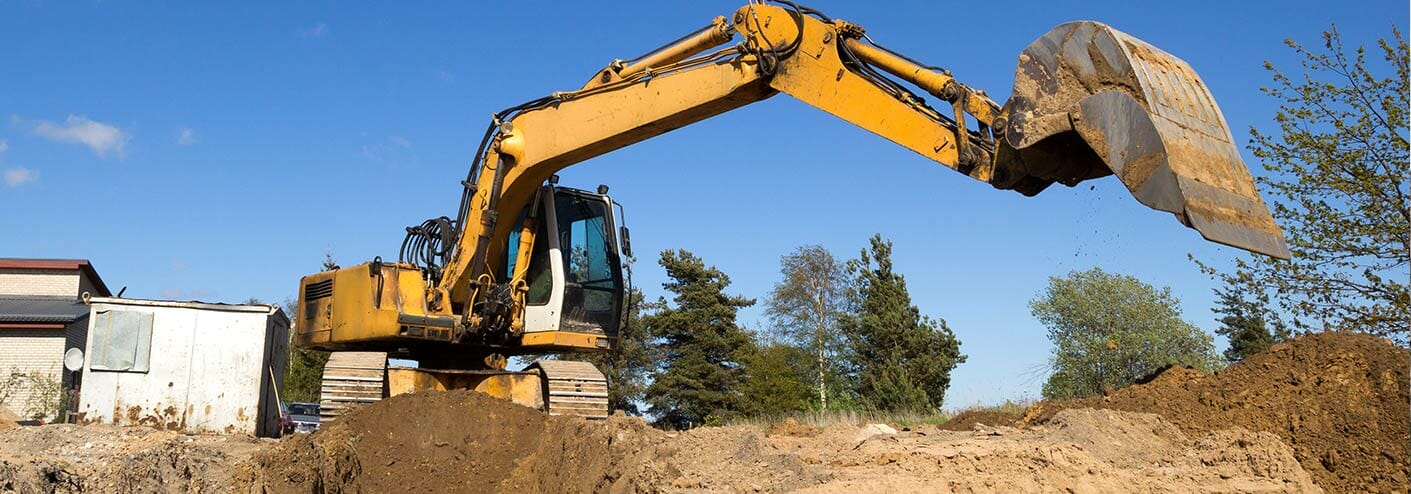Excavation Accidents
All workers should be able to expect a safe work environment, even in inherently dangerous industries like construction
Those who work underground or in trenches face a unique risk – cave-ins. Trench walls can collapse suddenly, trapping people and quickly crushing or suffocating them. In fact, a single cubic yard of dirt can weigh more than 3,000 pounds (as much as a car). Plumbing, carpentry, electrical, mining, masonry, ironworking and operating heavy equipment are just some of the types of jobs that may require workers to enter underground spaces.
 If you have been injured in an excavation accident, you may be entitled to benefits for your medical costs and lost wages. If you are the survivor of a loved one that was killed in a cave-in accident, you may be able to recover funeral expenses as well as financial compensation for your pain and suffering. Based in Pikeville, KY the Johnson Law Firm understands the risks associated with excavation work and believes you should be able to focus on your recovery – leave the legal matters to us. Contact our office for a free consultation: call toll-free at 606-437-4488 or contact us online.
If you have been injured in an excavation accident, you may be entitled to benefits for your medical costs and lost wages. If you are the survivor of a loved one that was killed in a cave-in accident, you may be able to recover funeral expenses as well as financial compensation for your pain and suffering. Based in Pikeville, KY the Johnson Law Firm understands the risks associated with excavation work and believes you should be able to focus on your recovery – leave the legal matters to us. Contact our office for a free consultation: call toll-free at 606-437-4488 or contact us online.
Coal Mining Accidents & Injuries
 Coal has been mined in the Bluegrass State for over two centuries, with the first known commercial production taking place in 1790 in Lee County. Since then coal mining has been a way of life for generations and the source of income for millions of Kentuckians over the years. Read More: Mining Accidents & Injuries
Coal has been mined in the Bluegrass State for over two centuries, with the first known commercial production taking place in 1790 in Lee County. Since then coal mining has been a way of life for generations and the source of income for millions of Kentuckians over the years. Read More: Mining Accidents & Injuries
Failure to Follow Regulations
According to the Bureau of Labor Statistics, 350 workers died in cave-ins between the years 2000-2009, which is an average of 35 deaths a year. Countless more are injured.
Yet the hazards of trenching and excavation activities are well defined and preventable.
The most common cause of cave-ins is the lack of a protective system despite requirements issued by the Occupational Safety and Health Administration (OSHA) to the contrary for any excavations greater than five feet deep.
Many Dangers
Besides trench collapses, cave-ins, and side wall collapses, other excavation concerns include sufficient entry and exit methods, water accumulation, stress from adjacent buildings, falls into the trench, warning systems on equipment, asphyxiation due to lack of oxygen in a confined space, inhalation of toxic fumes, and electrocution (from contacting underground utilities).
Other regulations issued by OSHA aimed to help reduce excavation accidents include guidelines such as:
- Daily inspections of the trench
- Detailed horizontal-to-vertical ratios for sloping the sides of excavations dependent on the type of soil
- Specific minimum requirements for shoring of trenches regardless of soil type
- Excavated material and equipment must be at least two feet back from the edge of the trench
- Fresh air must be continually supplied to the work area
- Pipes, wires and utility lines must be clearly marked and highly visible
- Water levels and weather conditions must be monitored by a supervisor
- A enter/exit ladder must be within 25 feet of workers
More specifically, OSHA regulations dictate that all trenches five feet deep or greater require a protective system such that the walls of the trench must be one of the following:
- Sloped for stability; or
- Cut to create stepped benched grades; or
- Supported by a system made with posts, beams, shores or planking and hydraulic jacks; or
- Supported by a trench box to protect workers.
Who Is Responsible?
General contractors are expected to have a competent person evaluate the soil to determine the best kind of protective system to use and how far apart the supports should be placed. That person also should inspect the excavation site, all bordering areas and the protective system throughout the job. Furthermore, excavations adjacent to previously backfilled areas and those subjected to the vibrations of nearby traffic must be carefully monitored because both conditions can contribute significantly to instability, cracking and collapsing.
The National Institute for Occupational Safety and Health (NIOSH) offers web-based training for trench safety awareness for anyone interested in more information.
Representing Injured Excavation Workers
The Johnson Law Firm has substantial experience handling excavation accident cases. If you or someone you love has suffered an injury from an excavation, trench, or cave-in accident, contact us today by calling toll-free 606-437-4488 or filling out our online form. We have successfully represented numerous individuals who have been injured through the actions of another person or company. Let us help you.



 William “Billy” Johnson grew up in the Dorton area of Pike County, Kentucky, and early on decided to stay in the beautiful Appalachian mountains. Like many others in Eastern Kentucky, Billy’s dad worked as a coal miner, a hard job but one that taught his son how to meet challenges head on and persevere. Attorney Billy Johnson has years of experience helping injured clients with claims such as car, truck, and motorcycle accidents, wrongful deaths, work injuries, and more. [
William “Billy” Johnson grew up in the Dorton area of Pike County, Kentucky, and early on decided to stay in the beautiful Appalachian mountains. Like many others in Eastern Kentucky, Billy’s dad worked as a coal miner, a hard job but one that taught his son how to meet challenges head on and persevere. Attorney Billy Johnson has years of experience helping injured clients with claims such as car, truck, and motorcycle accidents, wrongful deaths, work injuries, and more. [ 



